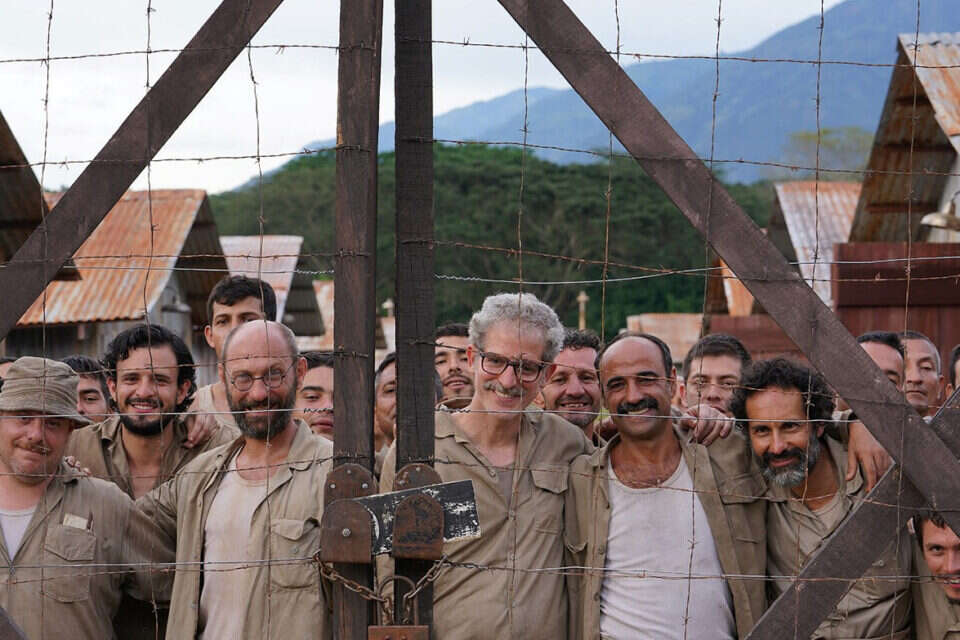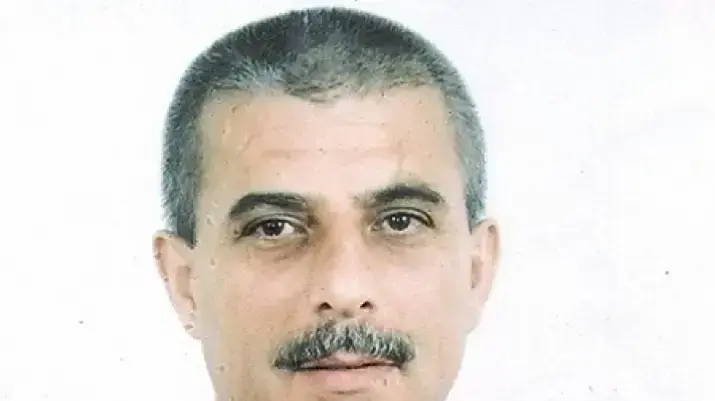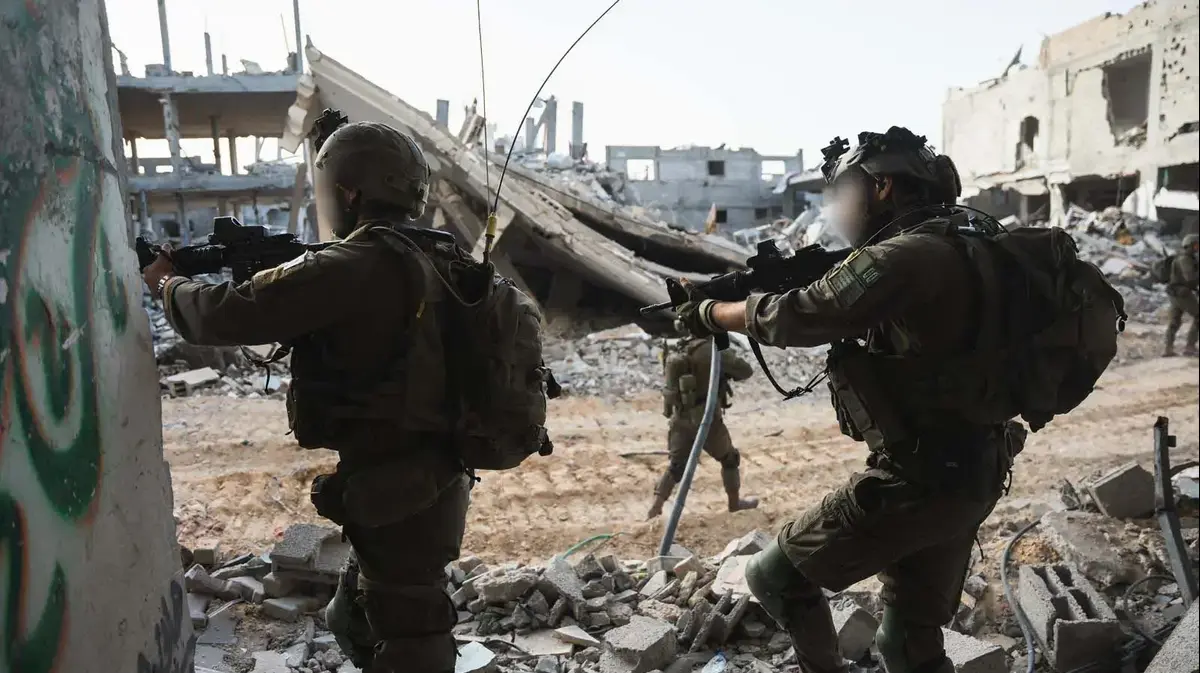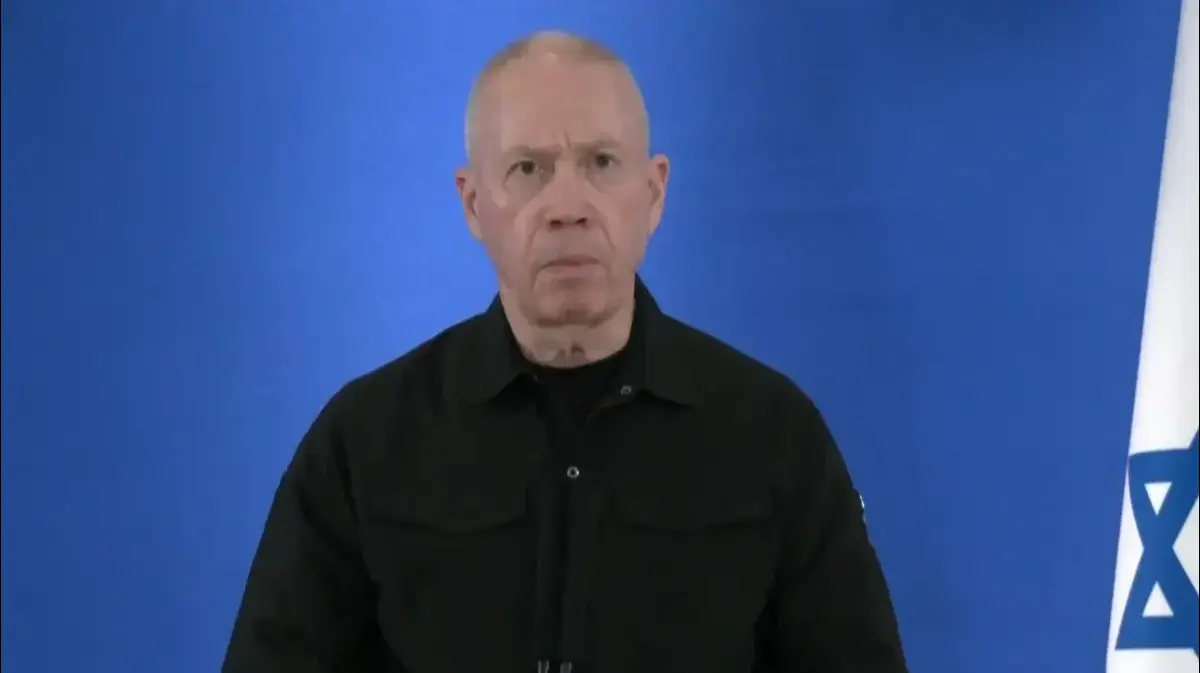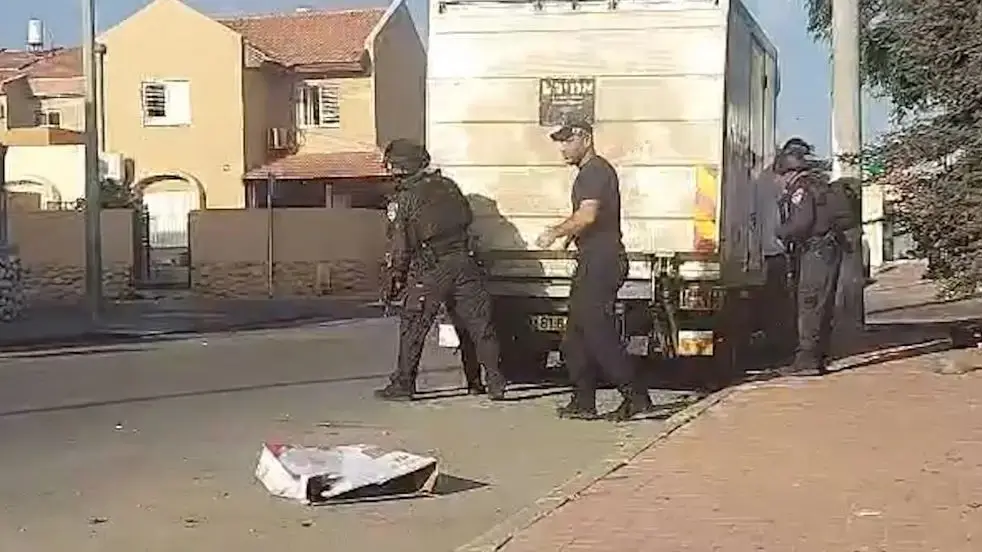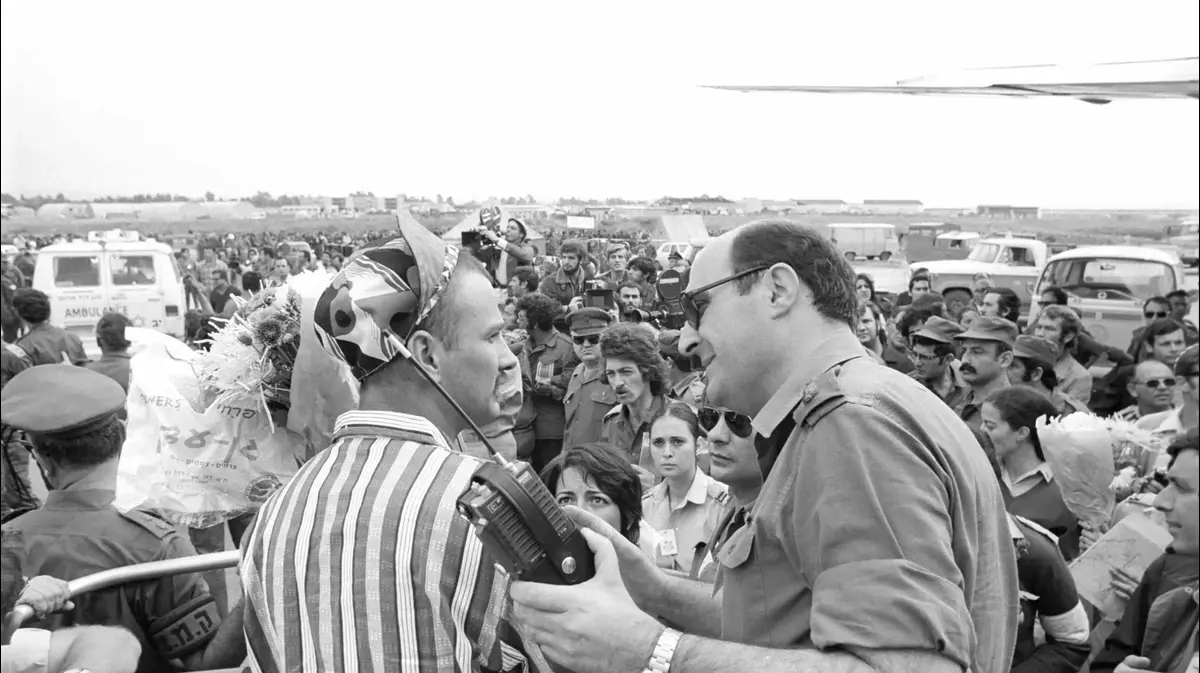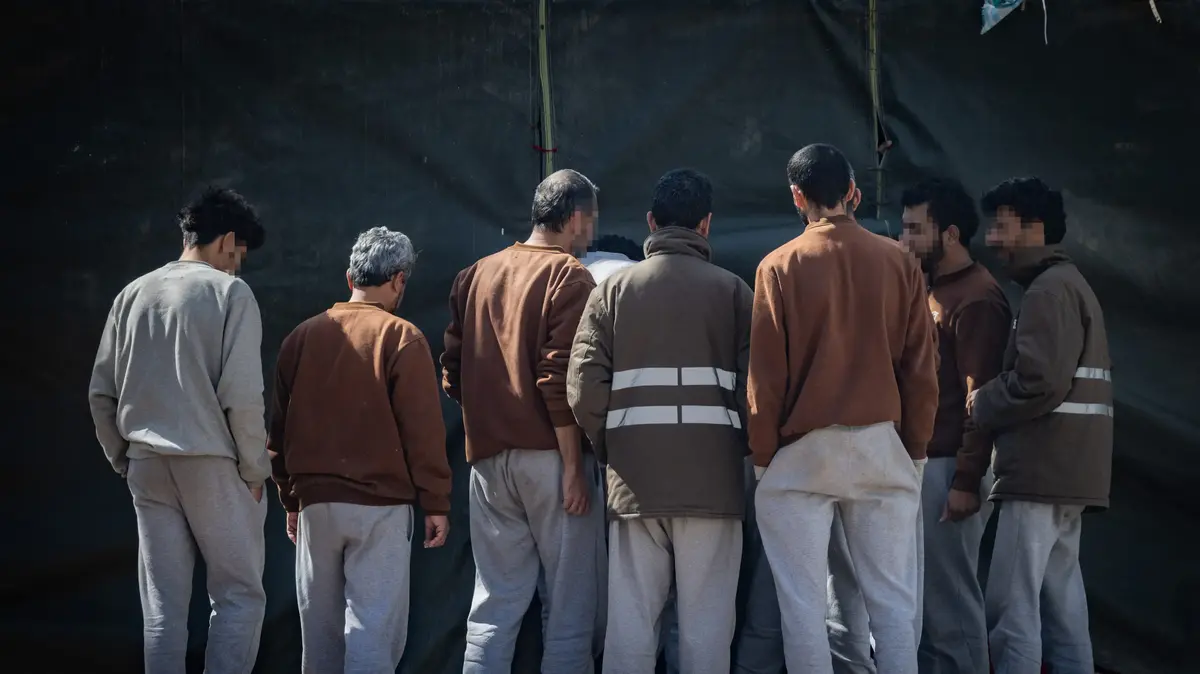"I am angry about the series and the interviews that the creators conducted to promote it," Eliezer (Gezer) Hillel, son of Yaakov Hillel, one of the prisoners of the detention camp who is at the center of the "Carthage" series that is being broadcast these days on Kan 11, tells me. Eliezer is a retired Shin Bet officer and author The book "And on the letters that will testify", which deals with correspondence from and to captivity. It is not the only one. Baruch Gutmacher (98) was one of the Etzal fighters who were exiled to camps in Africa in the first wave. "None of what appears in this series was real," he tells me this week from his home in Haifa, "this is a blackening of our faces, the fighters."
The series, created by Yenz and Rashef Levy, unfolds the story of the "Carthago" camp in Sudan, one of three detention camps to which hundreds of Echelon and Lehi fighters were deported by the British Mandate authorities from 1944 to 1948. The other two were "Sambal" on the Eritrean border and "Gilgil" in Kenya.
Among the first 251 detainees deported to "Carthage" in '44 was Eliyahu Levy, the father of the creators of the series.
Gezer, as mentioned, is very angry about the historical distortions and lists them one by one: "In the series they say that their father spent seven and a half years in Africa, while the exile lasted less than four years in total, and since I know exactly on what date their father arrived there and when he was released, You can find out in a simple calculation that it is only two years and six and a half months. But this is only the beginning. This thing that is shown, as if underground fighters sat in the same base with Nazis and fascists, is simply not true. If it seems to anyone that a Nazi would have come within touching distance of Yitzhak Shamir and Surd - he does not know What is he talking about."
Hillel backs up his claims with his busy library, which contains dozens of books about the underground period in general and the exile in Africa in particular.
"Dozens of books have been written about the camps. Testimony books, memoirs, encyclopedias and research books. There are documentaries, interviews, newspapers, photos. Everything is on the shelf. You can know about every day from all the years of exile. There are drawings and charts of the camps. You know the composition of barracks The residences, who sleeps in each room... know their meal menu."
"The information flowed into Israel in real time," Gezer continues, "because every day letters were sent from there to Israel. There is no mention of Nazis. Furthermore, in Carthage the exiles celebrated the first Seder night. Two rabbis were sent from Israel for it. One presided over the Seder and one was a butcher. They came for a short time, then returned to Israel and told what they had seen. Even in their documentation there is no trace of this 'fact', around which the plot of the series takes place. Occasionally there were also exiles who were returned to Israel and released. When they arrived, the local media came to interview them. My mother had A collection of newspaper clippings from the period, mainly from the HaMashiqif newspaper, about everything that dealt with the exiles, because my father was in Africa at that time. There is no mention of the Nazis because there was no such thing, and this is the core of the story of the series."
Even in the letters sent to and from the camp, there is no mention of him.
"Of all the camps in Africa where the exiles were housed, 'Carthage' was the most difficult in terms of overcrowding and sanitary conditions," explains Hillel.
Prisoners of Carthage, including the father of Eliezer (Gezer) Hillel, from the family album,
"The families in Israel created pressure on the British Commissioner in Israel. In their letters, they expressed anger at the difficult conditions in which their loved ones are staying, but no one wrote about Nazis who stayed with them in the same camp, because there were no Nazis there. It takes a sick imagination to think of such a possibility."
What particularly upsets Gezer is that even in the interviews the brothers gave around the launch of the series, they repeated that they had been in Nazi and fascist camps, even when it does not serve a dramatic need.
"When in the third episode there is a joint escape of a Lehi man and a Nazi, it's crazy, it's unthinkable.
But when this lie is repeated in an interview, as if it really was and did not share artistic freedom, it is really incomprehensible to me."
Back in the promo I was skeptical
But that's not the only thing bothering the carrot.
"The exiles are presented in 'Carthage' like a poor fascist cartoon. But nothing could be more different from the reality: these exiles were the best. Do you know how much culture, elegance and creativity were imprisoned in these camps? Among them were lawyers, people of book and culture, doctors. This is truly a generation The giants, the generation of leadership that we were supposed to have - and some of them really became such. To demean them so much is to harm their memory, harm their families and harm the entire public who does not know the truth and is impressed by it.
"And above all: 'We are recruited for life, from a line only death frees', the line from the Lehi hymn, was not a song or a slogan for them, but an imperative.
This line is them, themselves and their flesh.
When people like this are made into a caricature, I get angry.
In fact, except for the name 'Carthage', and the fact that there were underground exiles there - nothing is true in the story.
You get millions of shekels and you can't invest a million in telling the truth?!" he says angrily.
"I decided in advance not to watch this series," says Hami Cohen (73), son of Yehoshua Cohen, who was one of the senior leaders of Lahi and one of the African exiles. "From the promos it was clear to me where it was going.
They say that Nazis were there when they weren't.
Of course, anyone whose father sat there, and my father was there for four years, feels uncomfortable with this show."
As mentioned, the protagonist of the series, Eliyahu Levy, is described as a whistleblower, and therefore the other underground prisoners threaten to murder him.
"There were periods in Lehi when the atmosphere of suspicion was so acute that I remember my father telling that he could not even trust himself.
Because of the suspicion that he was a whistleblower, they probably didn't treat Levi well, maybe they didn't smile at him in the dining room, but not beyond that.
But what was in Africa - stays in Africa.
My question is what do Eliyahu's children gain from the fact that they will now talk about their father as a preacher."
Baruch Gutmacher, as mentioned, was there himself and remembers Levi personally.
"In the book of Guli Kenya, Rashef Levy's father appears, but not as a member of Hai.
He was really with us in Africa, but he didn't dig tunnels or participate in escapes like us because he was an outcast.
I know he was interrogated in Israel, maybe he gave messages, I don't know, maybe the British and the defense pressured him and he couldn't stand it.
But what they did in the 'Carthage' series does not belong to us.
Guttmacher refers to a death sentence that was allegedly issued against Levy by one of the underground commanders in the series.
Guttmacher in the 1940s,
"There were no Germans with us. Only the prisoners from the Etzal and Lehi undergrounds, British and Sudanese guards. It might be their dream or something. It upsets everyone connected to the Kenyan exiles and the underground, because they make fun of us. The treatment of the British is also incorrect. The British did not get angry Son. The only case I remember is the exception that proves the rule: there was an escape of three Lehi men, and the officer who caught them handcuffed them and ran them.
When he returned to the camp, he was humiliated.
He wanted to be with us on Seder night, but we threw him out of the camp."
"The camps in Africa were intended for detainees who were suspected of belonging to the underground, in one way or another," explains Zeev Golan, a writer and historian specializing in the study of the underground.
"No Nazis or fascists were imprisoned there. I am not aware of any cases of beatings among the detainees, although it is possible that for such a long time and with so many people passing through the camps, someone was beaten. In any case, there was certainly no murder."
The series depicts a sadistic British commander who abuses detainees.
Golan denies this.
"There were guards who made it difficult for the detainees and there were those who treated them well. For the most part, the relations were correct. The exception, of course, is the case of the murder of Shaul HaGalili and Eliyahu Ezra in 12 Beshevat 1946. It is possible to be precise and say that they were murdered by the Sudanese guards and not by the British, although it is possible to reply that the British incited the Sudanese against the Jews.
Anyway, this case was unusual.
It took place in the 'Sambal' camp, also known as 'Asmara', and not in 'Carthage'."
"In all the four years of exile in Africa, there is no report of prisoners being beaten," Gezer adds.
"Relations with the British were fair, and there was even cooperation in many places, because some of the British guards were Jewish, and you could hear prisoners and guards speaking Yiddish to each other," he says, smiling.
"The British had an interest in going through the period in peace. They didn't need a mess."
Carthage as my father told me
"I only saw the promos for the series, and I came to the conclusion that I don't intend to watch it, because it is based on a complete lie. There were no Nazis there and there were no fascists there, and if there had been such a life in the same subjugation as underground detainees, the latter would not have been satisfied with a demonstration with shouts. These people knew how to do all kinds of actions, otherwise they wouldn't have been discovered there," explains historian Aryeh Naor, professor emeritus of political science, former head of the department of politics and communication at Hadassah College.
"The series distorts the image of the detainees, including that of my father, who was detained in the camps from the first day to the last. It depicts rude people who at best know how to shout 'Death to the Nazis,' while they were people with a deep view and also engaged in conceptual inquiries, were organized among themselves Among themselves, they published magazines and taught various courses in Hebrew and history. You just have to open one of the many memoirs that have been written, such as the one by Jacob Meridor 'The Long Road to Freedom.' about true stories".
Naor tells about Carthage as he heard from his father.
Contrary to what is described in the series, where the camp appears to be located in the heart of a thick jungle, he says that "in Carthage it was very uncomfortable. A desert climate, it was very hot there. The atmosphere in front of the British officers, from what I understand, changed according to who was in command of the camp at the time . There were those who took harder tactics and those who took more sporty tactics, but unlike what is described in the series, I don't think there was sadistic abuse of the detainees."
Another detail that does not make sense to Prof. Naor is the character of the camp commander's wife, who serves as a nurse.
"There were no women in the camps in Africa at all. It is obvious why. We are talking about the 1940s, it is inconceivable that they would bring women to a men's camp at that time."
The creators will come and say that the inaccuracies appearing in the series are part of the legitimate artistic freedom.
"I have nothing against artistic freedom. On the contrary, I am a zealous follower of it. But this series intentionally or unintentionally creates a feeling among the viewers that it is historical truth."
And that's exactly what saddens Gezer the most.
"If you make a series in which Elazar ben Yair, commander of Masada, gathers all the besieged in the fortress, and then, instead of committing suicide, gets on a spaceship and flies to the moon, I will have no problem with that. Why? Because the story of Masada is a well-known story, and if you write something like that - It will be clear that this is a figment of your imagination. The public knows what is true. But if you take a historical episode that, unfortunately, is not well-known enough, and mix it with lies and deception, that is what you will do in the public memory. It is selling an alternative history when the original history is not known."
"I don't know why they made the series like this," concludes Guttmacher, "it should be announced that it did not exist and will not be created. And that they will not broadcast this series anymore."
Reshef Levy preferred not to comment on things.
were we wrong
We will fix it!
If you found an error in the article, we would appreciate it if you shared it with us

